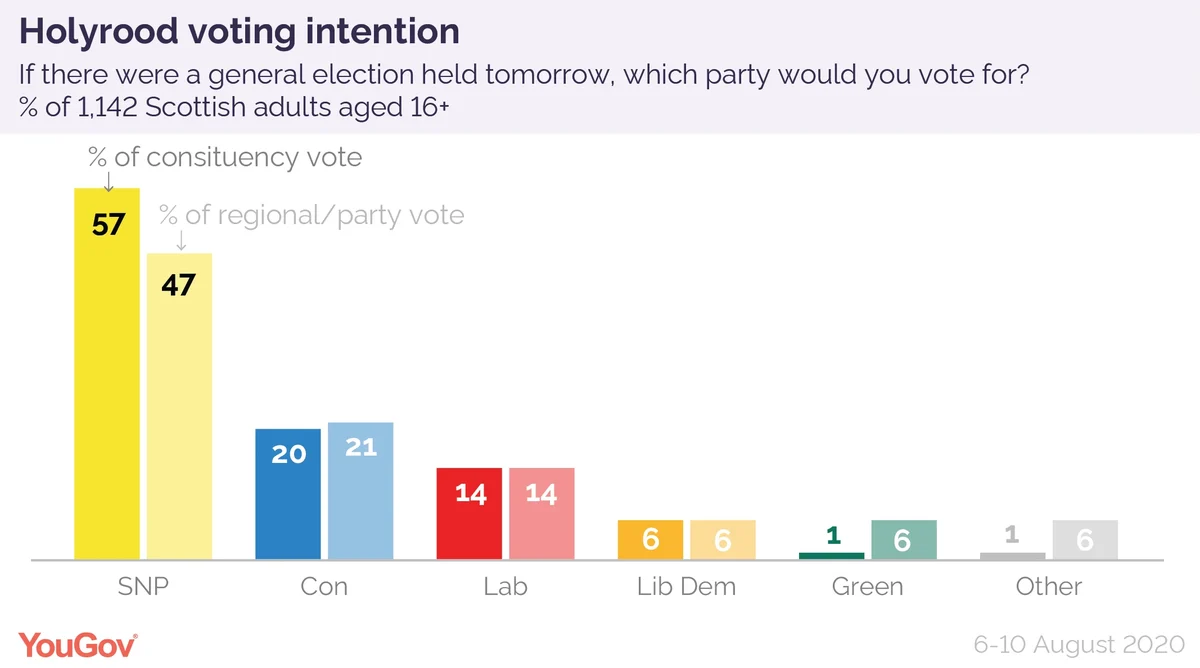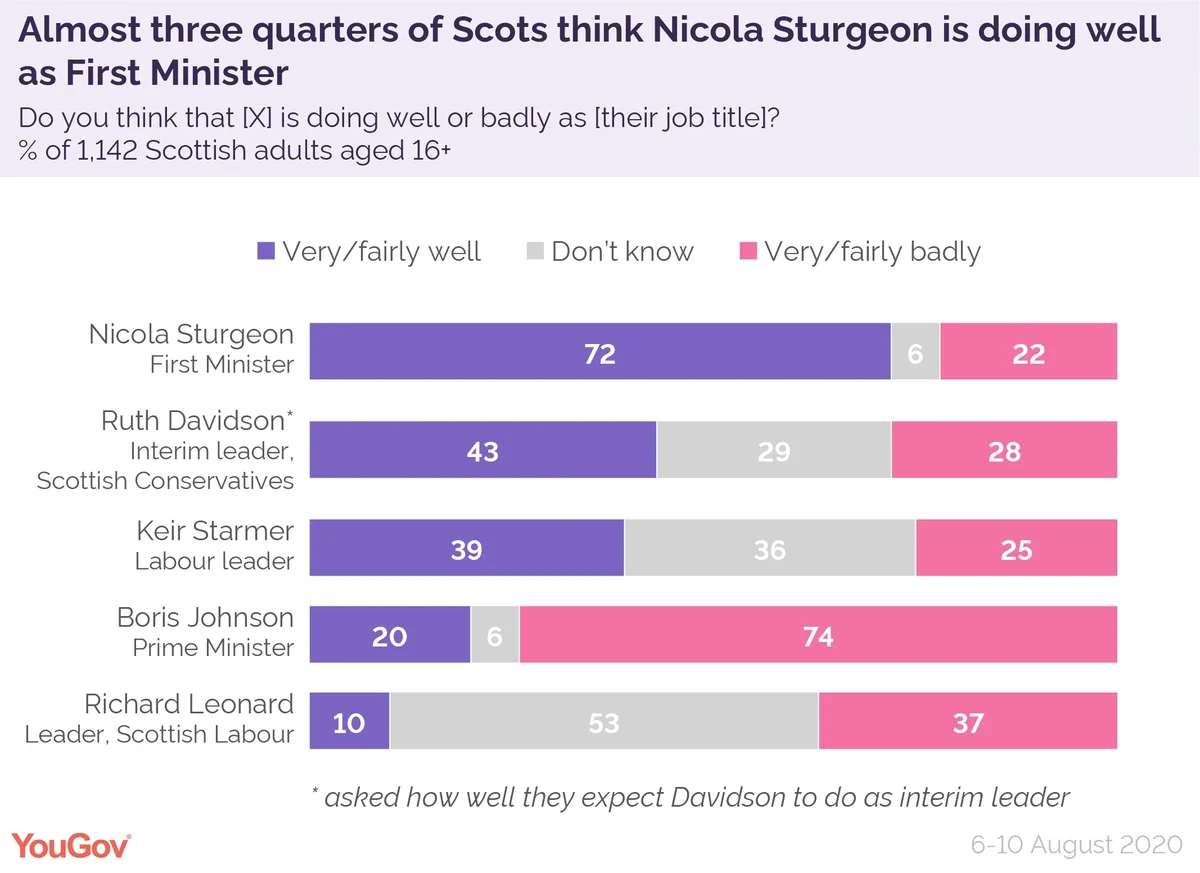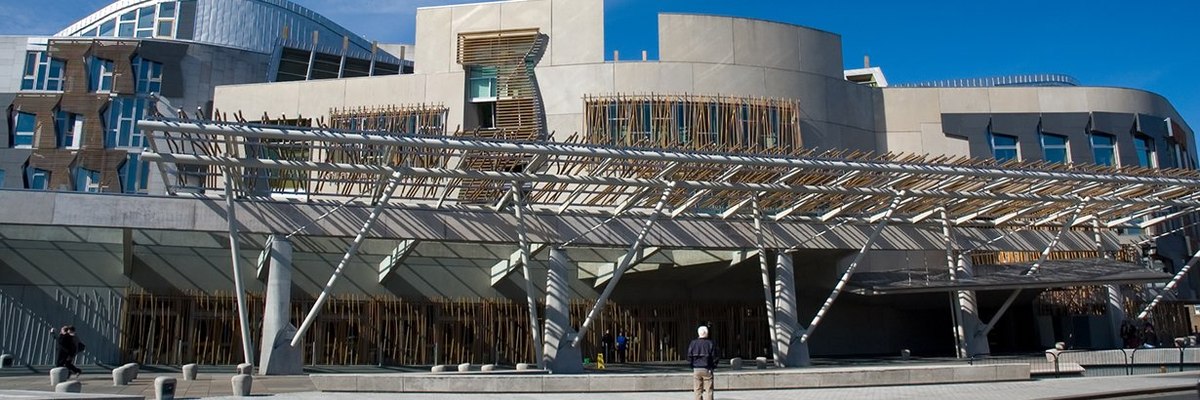This is YouGov's largest ever lead for the pro-independence side
To say our latest Scotland poll is bad news for unionists would be an understatement.
Firstly, the SNP still look set for a landslide victory in next May’s Scottish Parliament elections, an election they will go into pledging to hold a second independence referendum.
They are now polling at 57% on the constituency vote and 47% on the list vote. The Conservatives are still coming in second, on 20% and 21%, with Labour in third on 14% on both votes.

If this result were replicated on election day it would translate into a majority of around 20 seats, which is even more impressive given the Parliament only contains 129 seats, and the election uses a voting system designed to stop majorities altogether.
The Conservatives would likely drop a handful of seats, with Labour falling even further from their dismal performance in 2016. This would continue their trajectory of losing seats at every single election since devolution.
Secondly, there is a massive gulf between the popularity of pro-union and pro-independence politicians. A jaw-dropping 72% of Scots think Nicola Sturgeon is doing well as First minister*, compared to just 22% who think she is doing badly. Even a majority of those who voted No in the last referendum (59%) support the job she is doing.
*Fieldwork took place while the criticism over her handling of exam results was unfolding.
By comparison, just 20% think the Prime Minister is doing well, compared to 74% who think he is doing badly. Richard Lenoard, the Scottish Labour leader has successfully managed to increase the number of people who think he is doing well up to 10% from 7%, but there are still nearly four times as many (37%) who think he is doing badly.

Both Labour leader Keir Starmer and Conservative stand-in Ruth Davidson are in positive territory, with more thinking they are doing well than badly, but neither of them come anywhere close to the First Ministers levels of support.
Perhaps the only silver lining, given these results, is that “Yes” to independence only holds a six point lead in our latest poll.
After removing those who say that they don’t know who to vote for, or would not vote, “Yes” is on 53% and “No” is on 47%. This is the largest lead of any YouGov poll on the matter, and is driven by three in ten (30%) of those who voted No last time, and then Remain in 2016, now saying they would vote Yes.
Yes already held a two point lead back in January, but this seems to have increased over the course of the coronavirus pandemic.
However, it does mean that a hypothetical referendum would be closely with both sides still in the running. If the high support for the actions of the Scottish Government has driven the recent increase, it means it could revert again if support begins to return to normal levels.
The No campaign would also likely push messaging on the economy, given our previous polling has shown that 42% think the country would be worse off economically if it went independent, compared to 24% who think it would be better off. It may therefore be useful to them that the economy is likely to dominate the agenda in the coming years.
Nevertheless, I doubt that will be much comfort for those Scottish Unionists who are seeing the views of the Scottish people trending away from them.











